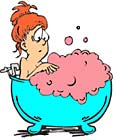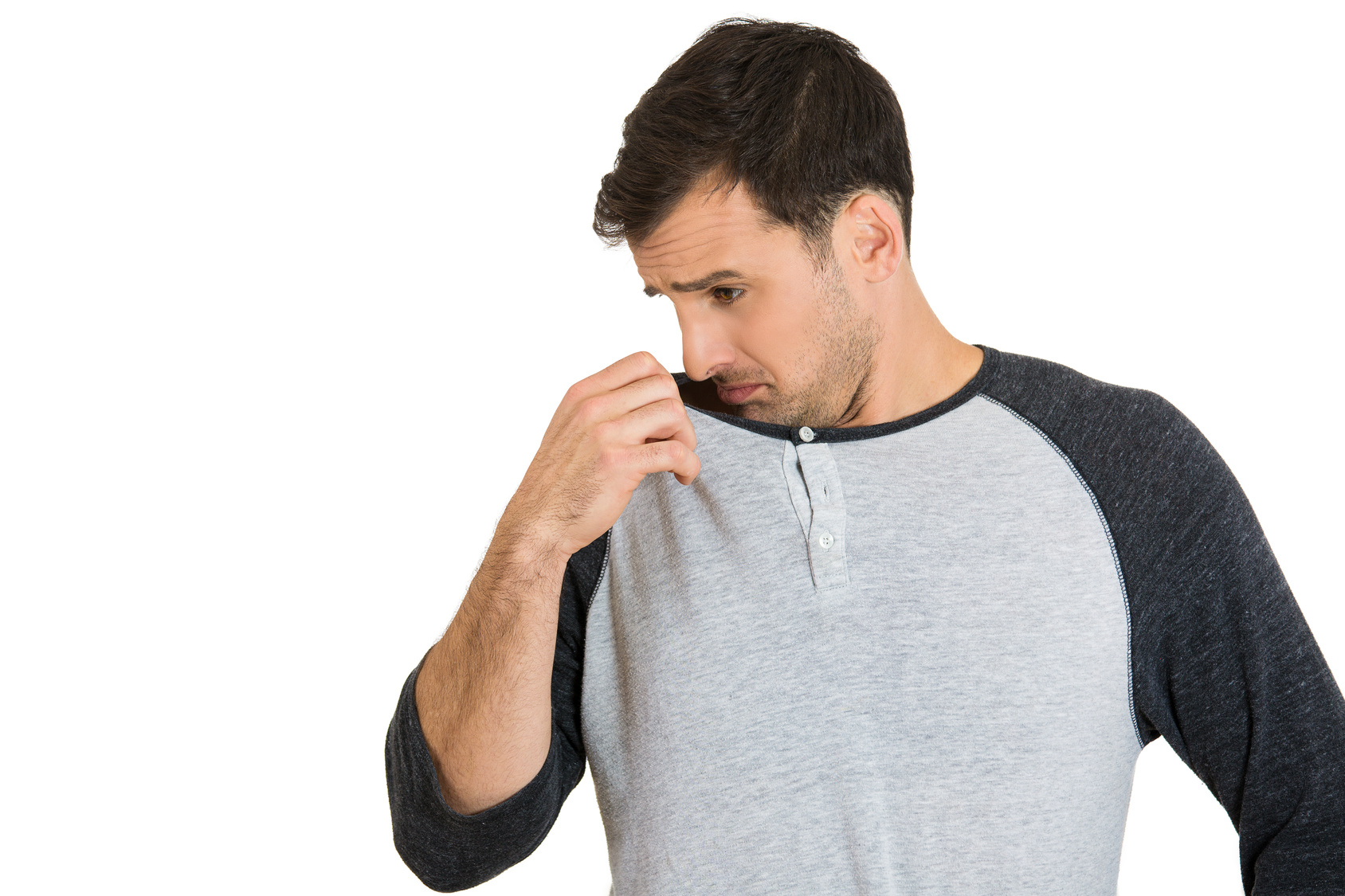Body Odor / Perspiration (Sweat)
 Perspiration, or sweat, is part of your body’s cooling mechanism. Water on your skins surface evaporates and helps cool you down. Sweat itself doesn’t actually smell, the odor is caused by bacteria on your skin releasing unpleasant-smelling natural chemicals. And thanks to puberty, `sweat glands become more active than before you were a teenager. You might notice this odor under your arms (armpits). Your feet and your genitals might also have new smells as well. The best way to keep clean is to bathe or shower every day using a mild soap or body wash and warm water. This will help wash away any bacteria that contribute to the smells. Taking a shower is the best way to get your whole body clean because you are washing under running water. Wearing clean clothes, socks, and underwear each day also helps you feel clean. If you sweat a lot, you might find that shirts, T-shirts, socks, and underwear made from cotton will l help absorb sweat more effectively.
Perspiration, or sweat, is part of your body’s cooling mechanism. Water on your skins surface evaporates and helps cool you down. Sweat itself doesn’t actually smell, the odor is caused by bacteria on your skin releasing unpleasant-smelling natural chemicals. And thanks to puberty, `sweat glands become more active than before you were a teenager. You might notice this odor under your arms (armpits). Your feet and your genitals might also have new smells as well. The best way to keep clean is to bathe or shower every day using a mild soap or body wash and warm water. This will help wash away any bacteria that contribute to the smells. Taking a shower is the best way to get your whole body clean because you are washing under running water. Wearing clean clothes, socks, and underwear each day also helps you feel clean. If you sweat a lot, you might find that shirts, T-shirts, socks, and underwear made from cotton will l help absorb sweat more effectively.
 If you are concerned about the way your underarms smell, you can try using a deodorant or deodorant with antiperspirant. They come in sticks, roll-ons, gels, sprays, and creams and are available at any drugstore or supermarket. All brands are similar (and ones that say they’re made for a man or for a woman are similar too, except for some perfumes that are added). The main difference is the one between deodorants and antiperspirants. Deodorants get rid of the odor of sweat by covering it up, and antiperspirants actually stop or dry up perspiration. Antiperspirants often contain a deodorant in them too.
If you are concerned about the way your underarms smell, you can try using a deodorant or deodorant with antiperspirant. They come in sticks, roll-ons, gels, sprays, and creams and are available at any drugstore or supermarket. All brands are similar (and ones that say they’re made for a man or for a woman are similar too, except for some perfumes that are added). The main difference is the one between deodorants and antiperspirants. Deodorants get rid of the odor of sweat by covering it up, and antiperspirants actually stop or dry up perspiration. Antiperspirants often contain a deodorant in them too.
 Keep in mind that deodorants or antiperspirants aren’t even necessary for some teenagers. Deodorant and antiperspirant commercials may try to convince you that you will have no friends or dates if you don’t use their product, but if you aren’t troubled by the way you smell and you take daily baths or showers and wear clean clothes, you may be fine without it. Everyone’s body chemistry is different. Some people perspire more than others.
Keep in mind that deodorants or antiperspirants aren’t even necessary for some teenagers. Deodorant and antiperspirant commercials may try to convince you that you will have no friends or dates if you don’t use their product, but if you aren’t troubled by the way you smell and you take daily baths or showers and wear clean clothes, you may be fine without it. Everyone’s body chemistry is different. Some people perspire more than others.
Many teens DO sweat more when they are growing or while their hormones are still fluctuating. See the Health FAQ page for more on this topic. Here is a question and answer about sweating from that page:
Q. I sweat so much all the time. The wet marks under my arms is embarrassing. Is this a physical or an emotional problem? I have tried many deodorants. Help!.
A. This is common problem for many teens. We all sweat different amounts, and the amount our sweat smells also differs. Certain materials make you sweat more — particularly artificial materials. Try and wear only pure cotton clothes. Make sure that you wash regularly to get rid of the sweat — bathing or showering twice a day helps. You say that you have many deodorants, try one with an antiperspirant in it. The best ones for sweating contain aluminum chloride hexahydrate.
Sweat is part of our body’s cooling mechanism. Water on your skin’s surface evaporates and helps you cool down. Sweat itself doesn’t actually smell, the odor is caused by the action of bacteria. Profuse sweating that occurs at times other than in hot conditions or after exercise is sometimes due to a disorder called hyperhidrosis. This disorder is marked by perspiration produced in abundant among by overactive sweat glands. When you’re a teenager it is not uncommon for hormones to be causing overactive sweat glands. However, there could be other causes like hyperhidrosis.
Excessive sweating may be all over the body or be limited to certain areas of the body. This condition affects both men and women and usually begins during childhood or at puberty, but improves spontaneously for many people in their twenties. (I know I had it too when I was about 14 – 16). The hyperhidrosis itself can cause anxiety or distress for people who have it, which leads to additional sweating.
Make an appointment with a health care provider to make sure that what you have is primary hyperhidrosis (rather than an underlying condition that causes profuse perspiration, known an secondary hyperhidrosis, which would require treating the underlying condition first, often resolving the abundant sweating as well). Take this opportunity to get more information and to discuss your treatment options and their possible side effects.
To Health FAQ pages… —>
